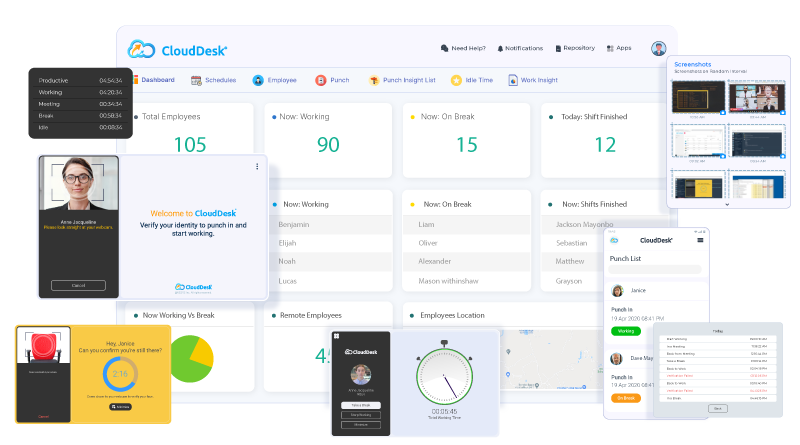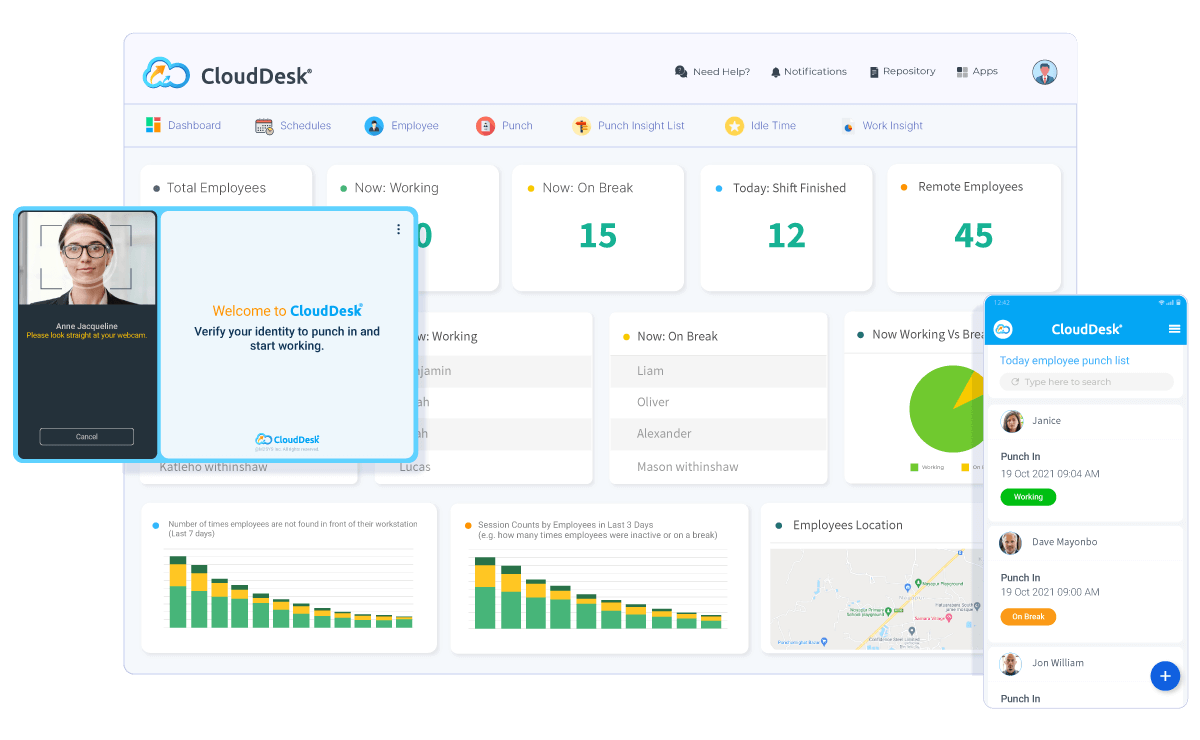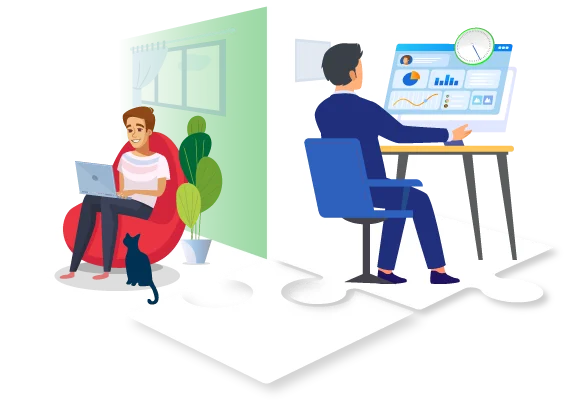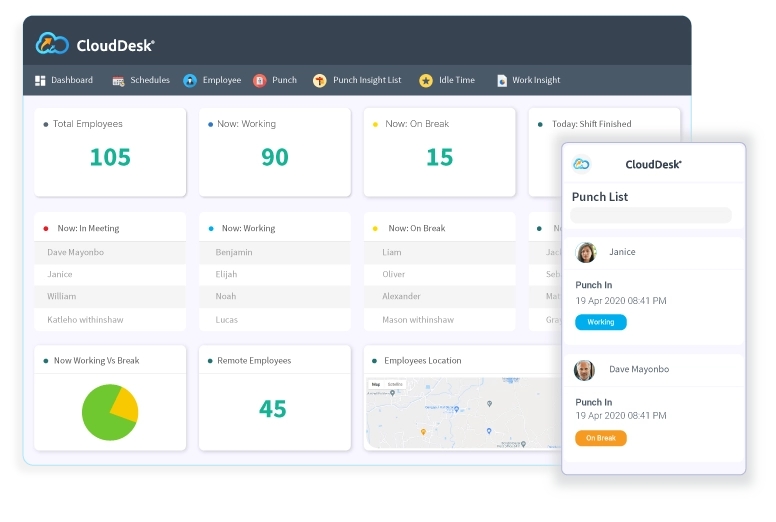“I want a good career, but I also want a life.” The sentence summarizes one of the essential things that Millennials and Gen-Zers say. They are one of the fastest-growing and most common groups in the workforce today, so it’s not a viewpoint to be taken lightly. The current and future remote working trends suggest that younger workers are significantly altering how we do business.
According to Gartner, 74% of businesses intend to move at least a portion of their staff to permanent remote work. Since the post-pandemic, many employees have adjusted to working away from their coworkers and office space; many employees wonder: What happens next?
Before we learn why the future of work is remote, let us first understand what remote work is.
What is remote work, and why is it increasingly popular?
Remote work is the method of employees working from a distributed location other than their business premises. Such places could be an employee’s home, a co-working space or additional shared space, a private office, or any other place that isn’t in the traditional corporate area. As many remote workers work from home, a home office is also a popular syn of remote work.
Remote work is becoming incredibly popular because it offers both businesses and employees advantages. Remote work has received a lot of additional attention due to the COVID-19 pandemic, which prompted many businesses to quickly shift from face-to-face work environments to remote work for health and safety reasons. Remote work has benefitted employees in several ways, starting from eliminating commuting time and productivity gains; it has allowed them to come near to their family and bring a good balance to their personal and professional life.

What is the current state of remote work?
The modern workforce is increasingly dynamic, mobile, and collaborative, each with its work preferences. The advancement in technology has made it easier for employees to continue working from remote locations, both in the United States and worldwide. It’s not like remote workers are always working from home. Some remote workers visit cafes or co-working spaces, and some even roam around different parts of the globe while maintaining their official ambitions.
On the other hand, many businesses do not prefer the remote work trend for various reasons. Some managers are concerned about staff productivity, while others may not have the right technology to accommodate distant workers. Many other businesses have experimented with the remote workforce and are happily continuing it, seeing the success with their remote teams. Enterprises are increasingly adopting remote-friendly strategies to meet employees’ expectations to work remotely. By implementing a good remote working policy, companies can also achieve more significant results and save money by eliminating the cost of office maintenance. While allowing employees to choose flexible schedules and work from their preferred location. It is a win-win situation for both parties.

How will remote work develop in the future?
Experts from industries predict that businesses can manage their remote teams to work seamlessly with advanced technologies, such as project management tools, monitoring software, instant communication tools, shared drive, and many other tools. Managing a remote team with the right technology, sound policy, and hard-working employees can be easy.
To fit into the new generation of work, businesses should make their remote work policies and capabilities better so that employees can work from home more often. If you are concerned about productivity and performance, you can set up remote employee monitoring software for your remote workforce to find out more about their work activities. This way, remote team members will be more accountable and engaged and monitor their performance.
Why is remote work the future of work?
Remote work has different viewpoints from employer and employee angles. Businesses can save money on operating expenditures while also seeing a productivity improvement. Employees can work on their schedule and in a space that they find most productive and comfortable in the meanwhile. Workplace flexibility is the new way of the future of work. It is up to businesses to choose the work environment that best matches their needs. On the other hand, employees see “the future of work” as “the future of life” as they feel that their jobs are closely tied to their personal lives and circumstances.
Below are six reasons why remote work is the future of work and how it benefits your business and your employees.
- Remote employees save you money: Aside from saving money on office rent and other office necessities that are not required with a remote workforce, Owl Labs estimates that businesses with a remote workforce can save up to $11,000 per employee per year. Not only that, but 34% of employees in the United States say they would gladly take a salary cut if they are offered the option to work from home instead, thus saving you even more money.
If half of the workforce is remote – or the entire team is remote – businesses can save significant amounts of money by renting a smaller office exclusively for meetings, conferences, or group work. It will allow hybrid workers to work in offices, knowing that there will always be space.
- Employees who work from home are more productive: With no commuting hassle to dampen their spirit, remote workers are often more prepared for the start of the working day with full potentiality. There are less interruptions from coworkers dropping over with queries or small discussion to be completed, and online meetings often involve less formality and wasted time. Working from home is thus ideal for achieving that much-desired work/life balance.
- Businesses that allow remote work retain more employees: Finding and recruiting the right person and all the training and onboarding that new hires require is stressful for corporate managers: finding the right person to replace departing employees, training and onboarding that new hires need. Not to mention the loss of valuable time and money when experienced employees leave. According to research, only 55% of employees who work in a physical office are pleased with their jobs. This means that 45% of your employees could leave at any time. Remote work can reduce employee turnover by 25%, as many remote workers report they are pleased in their jobs. Employees are less likely to be attracted by other companies if they are happy at work.
- It aids employees’ mental wellness: It is a known fact that employees experience less work-related stress when working from home. Job satisfaction rises, and employee turnover falls due to less stress and improved mental health for your entire team. Remote working has a virtuous circle of benefits for your company and its employees.
Imagine a world where you don’t have to rush to work, no office politics, no favoritism, and no micromanagement. You can reduce this stress and its consequences when you work from home. And thus, the overall environment causes less stress and more well-being.
- Remote working empowers employees: When employees work from a remote location, they have more control over their working day, including what tasks they prioritize and how they manage their time. Employees feel empowered when they get the opportunity to work autonomously. The majority of remote work allows flexible schedules with multiple breaks, which is highly desirable to any remote employee. Employee empowerment usually leads to increased productivity as well as increased job satisfaction.
- Remote work is eco-friendly: Global Workplace Analytics says that the US saved 3.6 million tons of greenhouse gas emissions during the pandemic when people worked from home. This is because people who worked from home drove less. According to another study, remote working may save worldwide greenhouse gas emissions by 54 million tons per year — too significant figures to ignore.
Depending on the roles of employees and the measures taken by each business to promote remote working, different industries will approach it in different ways. Nowadays, the level of competition is determined by remote work. It isn’t confined to working from home, and it gives employees the freedom to work wherever they feel most productive. Overall, remote work should be viewed as a win-win situation: a happy person is more effective and better values their employer.



